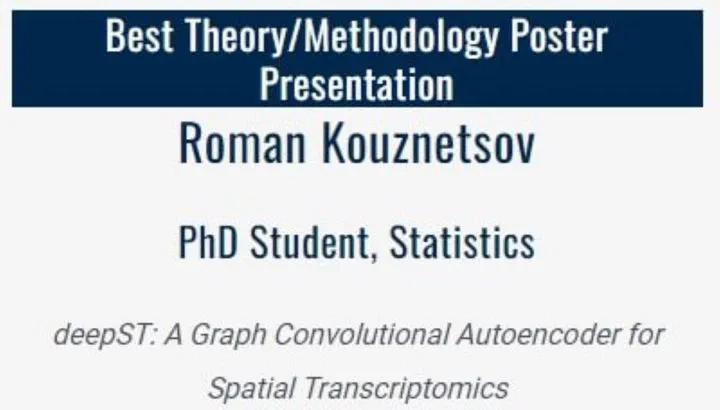deepST - A Graph Convolutional Autoencoder for Spatial Transcriptomics
Apr 2, 2022· ·
0 min read
·
0 min read
Roman Kouznetsov
 Image credit:
Image credit:Abstract
Spatial transcriptomics (ST) measures gene expression for individual cells and pairs these measurements with the positions of cells within a tissue sample. This opens the door for statistical methods to explore how neighboring cells interact. The statistical structure of these interactions can be investigated by posing prediction problems. For example, we can see which subsets of genes in neighboring cells are most predictive of gene expression in target cells. We can infer conditional independence structures by comparing prediction accuracy obtained from different subsets. Existing methods pursuing this vision use fixed-dimensional summaries of the attributes of neighboring cells, ignoring the number of neighbors and the interactions among them. We here propose deepST, a denoising graph convolutional autoencoder that accounts for these subtleties. For a large MERFISH hypothalamus dataset, deepST imputes missing expression levels for response genes more accurately than other state-of-the-art methods including gradient boosting, attaining a 8.7% reduction in absolute error. We also find that gradient boosting itself outperforms existing methods in this domain such as ``Mixture of Experts for Spatial Signaling genes Identification’’, attaining a 7.2% reduction in absolute error. This error reduction is critical because we are using differences in predictive accuracy to uncover biological structure, and these differences in prediction accuracy due to biological causes are often on the order of 1%.
Date
Apr 2, 2022
Event
Location
University of Michigan